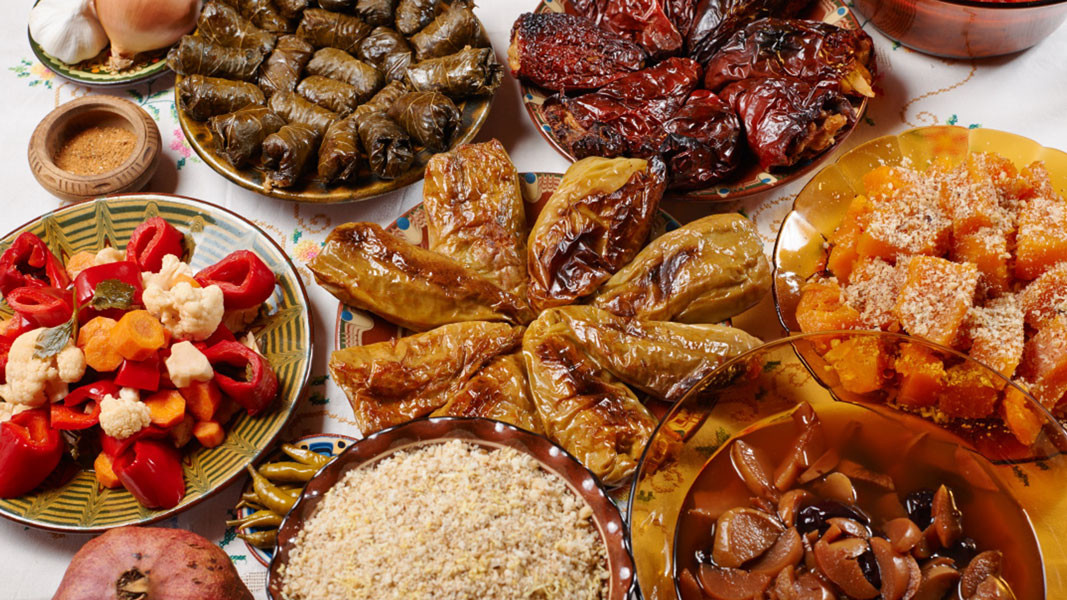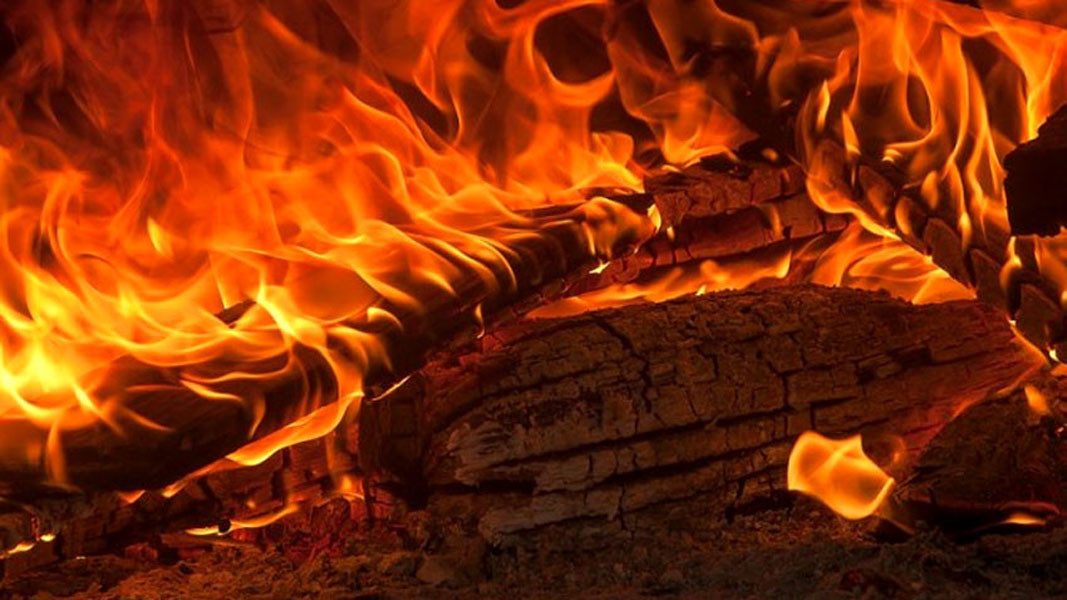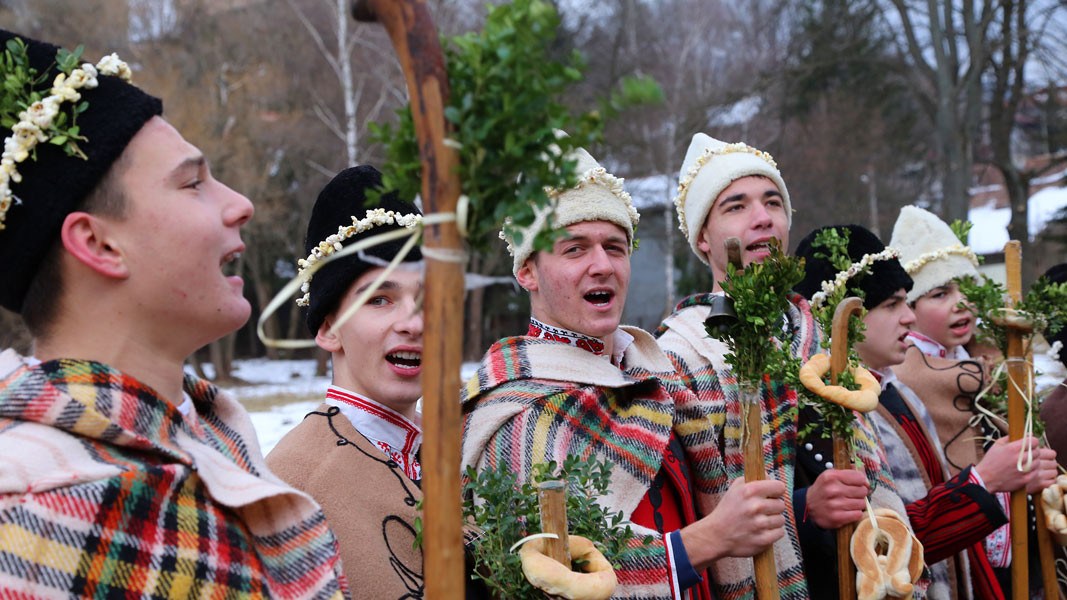Regardless of what the outgoing year has been and what occurred during the four seasons, December transforms our daily routine with its cycle of Christmas festivities, the lists with gifts for our loved ones and the richly laid tables. Everybody is in a thrilling rush to get ready for the holidays, and most of the time this task is rewarding. For Bulgarians the month of December gives the start to a string of name days, while Christmas Eve and Christmas Day represent important occasions of family reunion.
From chaos to cosmos, from darkness to light, from an end to a new beginning… This is the meaning of the ancient pagan ritual practiced in what is present-day Bulgaria during this time of the year. In the days surrounding the winter solstice ancient people celebrated the birth of the New Sun. In traditional notions, it descended along the branches of the World Tree in a bid to reach this world and lighten up the days of humans. This sacral moment has been recreated by our grandmothers in embroidery and carpet-weaving, in holiday bread making and in lovely folk melodies. Later on, the Christian church adopted 25 December as the day of the Nativity of Jesus Christ. The Holy Infant in Bulgarian folklore is called the Young God (“Mlada Boga” in Bulgarian) and is not unlike a pagan deity celebrated in pre-Christian times.

It is worth exploring the deep meaning of all elements of Christmas Eve, an occasion that has in a wonderful way married Christianity to paganism. For many of us it is more about the warm atmosphere of the family gathering and a table laden with an odd number of meatless dishes - a standard diligently observed even by the outright enemies of fasting and vegetarianism. Meatless stuffed cabbage leaves, dried peppers stuffed with manna croup, beans or rice, various legumes, no-yeast soda bread with a coin inside etc. The table should necessarily display everything that our land grows: raw or boiled wheat, fresh or dried fruit, honey, onions, garlic and walnuts. The table is incensed by the eldest family member.

The power of fire is essential to the occasion and is mirrored in the role of the “Budnik”, the Yule log, put to fire in the hearth with a special ritual. The whole range of magic practices on Christmas is aimed to ease yet another transition, and a new birth. The power of fire is meant to increase the power of the young sun, to overcome chaos in nature and restore cosmos.

Food served on Christmas Eve symbolizes bloodless sacrifice, gratitude and felicitation and is believed to assume special magic powers. So any leftovers from the table on that night are kept and used as remedies and for practices aimed to help boost fertility or success.
At midnight on Christmas Eve, the news of the Nativity of Christ is spread all around. Housewives lay on the table a bent bun and a large pot of wine - a sign that they are looking forward to the carol singers (“koledari” in Bulgarian). A few days before Christmas the young single men elect their leader, a married guy who knows all Christmas carols and teaches them to the young group. In the Bulgarian traditions the carols were many and various - about every member of the family, about members of different generations and representatives of various crafts. In many places across Bulgaria the practice of carol singers touring the community on Christmas is still alive. Their blessing is believed to usher good in people's homes, as well as health and success.

Christmas is a holiday of the shared joy from a new beginning. Children visit the homes of their parents. Spouses visit the homes of their best men. Craftsmen call on their masters. Gifts include festive loaves of bread, roasted poultry, wine and brandy. By tradition an all-village chain dance (“horo”) is performed to symbolize understanding and harmony in the community. Tables are abundant: there is plenty of meat and the traditional Bulgarian banitsa. Mulled wine and brandy are a must, just like on Christmas Eve.
Today many Bulgarians comply with tradition. Even if they live many miles away from their motherland, their table is still laid the traditional way. Family gatherings are common and there is a lot of sharing going on of thoughts, emotions and gifts.
English Daniela Konstantinova
Photo fuse: Mihail Dimitrov; photos: BGNES and ShutterstockIn the Bulgarian folk tradition, the feasts of Lazarus Saturday and Palm Sunday are related holidays. From Lazarus Saturday (Lazarovden in Bulgaria), girls prepare for the ritual kumichene, which is performed on the morning of Palm Sunday. A very old..
In April and May the visitors of the Strelcha Historical Museum will have the opportunity to get acquainted with the traditions connected with the Easter holiday cycle through the exhibition A Fine Easter, a Finer St. George’s Day . Easter..
Lazarus Saturday is widely known in Bulgaria as Lazarovden , celebrated by Orthodox Bulgarians on the day before Palm Sunday. The main rite is the lazaruvane - a traditional custom centred on themes of love and marriage. Girls over the age of 16,..

+359 2 9336 661
